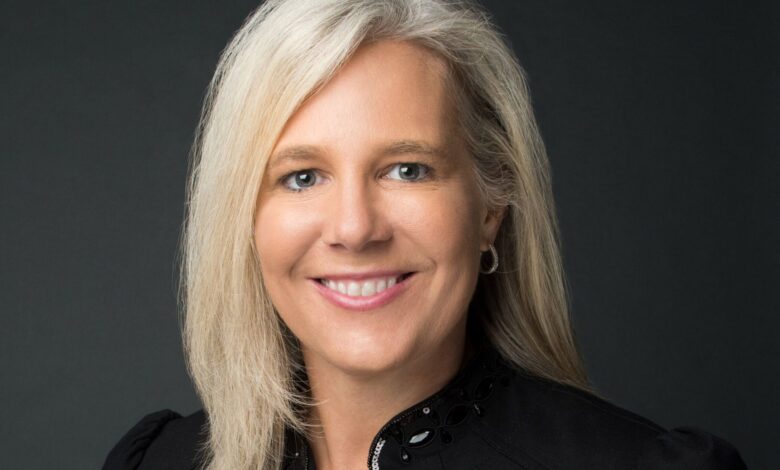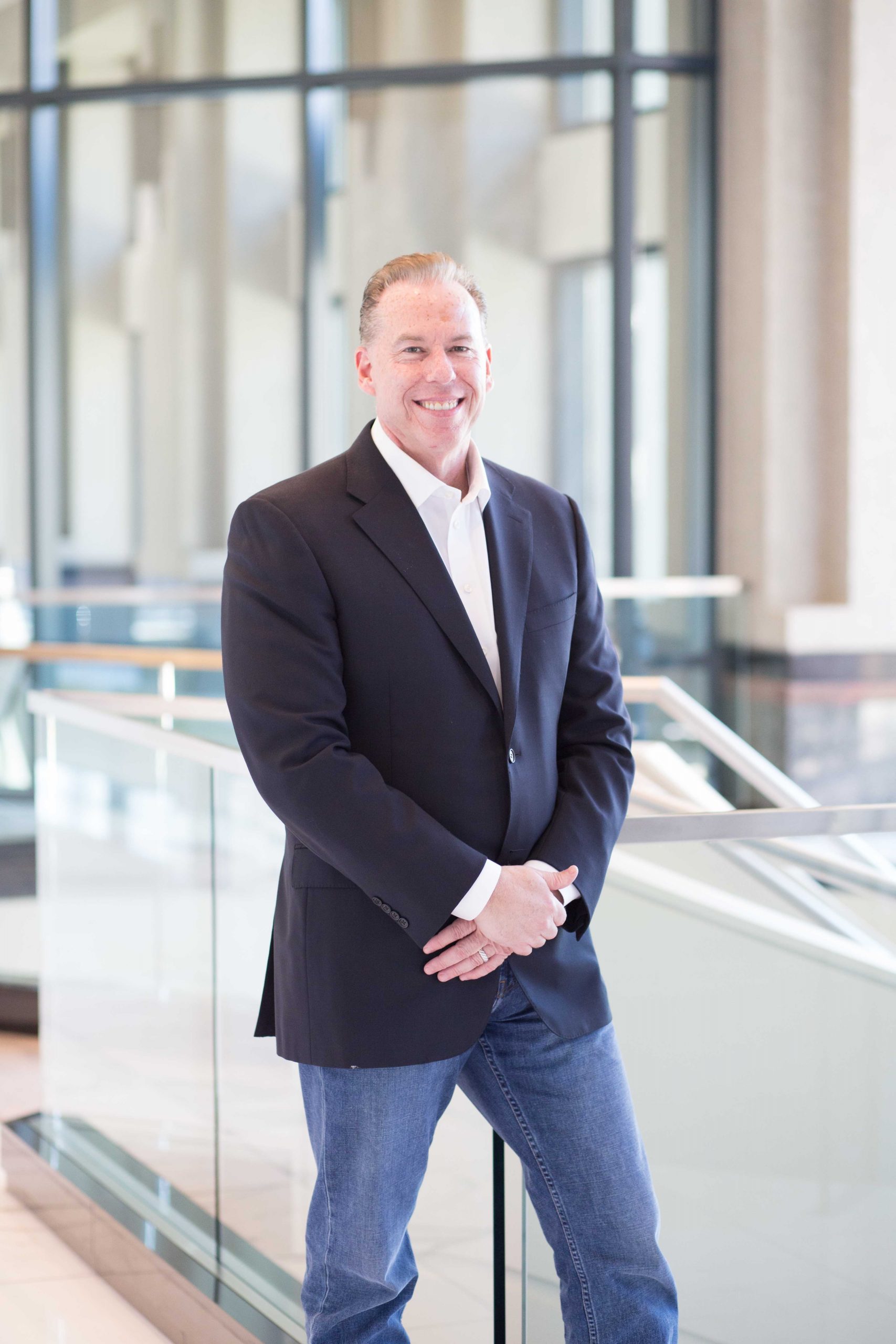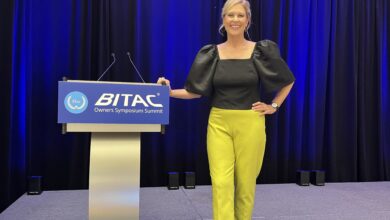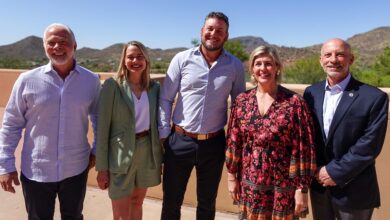
Engaging with Executives: Aimbridge Hospitality Chief Human Resources Officer Ann Christenson
By David Berman | May 8, 2023
Our Engaging with Executives series consists of one-on-one Q&As with executives around the hospitality industry, breaking down recent trends and news in their companies and the industry as a whole.
Today’s interview is with Ann Christenson, Chief Human Resources Officer at Aimbridge Hospitality. Christenson has been with Aimbridge since 2017, when the company acquired her previous employer TMI Hospitality. Other stops in her career in human resources include Sanford Health, CNH Industrial and the City of Fergus Falls.
In this Q&A from late March, Christenson speaks on Aimbridge’s talent acquisition and employee culture strategies, touching on initiatives such as The Aimbridge Way and Aimbridge Actions .
Hotel Interactive: First, I wanted to talk a little bit about talent acquisition. How has that shifted since the pandemic? Do you feel that labor market shortages are getting better or worse?
Ann Christenson: I actually attended a CHRO (Chief Human Resource Officer) summit of large retailers, and one of the presenters actually talked about what changed in that talent acquisition space, and in particular, what employees are looking for. I think that’s really what has changed most is what job seekers are actually looking for. In the past, we’ve really focused on reviews and how they were evaluated and things like that, where now it’s really about flexibility. It’s about feeling like they’re heard, they have a place to belong, there’s purpose to what they do. And so, the whole landscape of what candidates are looking for has completely transformed through the pandemic.
Some of what we did relative to creating the Aimbridge Way and building that culture was really to meet the candidates where they’re at, let them understand what are those promises and commitments that we make at Aimbridge to them. Our industry was one industry that still was growing jobs in the February jobs report. So you can tell there’s still a lot of opportunities within the industry for jobs. I think labor challenges have always been a part of our industry, and probably will continue to be. I think the key is how do you meet those challenges and what are the innovative things that you do as an employer to differentiate yourself? I think that’s where we really excel in some of the things that we’ve done to really combat that.
The candidate flow has certainly increased from where it was in 2021. We see a lot of applicant flow that we haven’t seen in the past. But again, still, it’s a tight labor market for everyone. Attracting and retaining, frankly, hanging on to the great associates that you hire, is also a key focus for us as well.
HI: You mentioned some things that Aimbridge has done to try to combat some of these labor issues. I would really love it if you could dive into some of those. What strategies have you and your team been using?
AC: The big landscape of it starts with creating those opportunities and a place for people to belong. So really the Aimbridge Way is really all about that. I talked earlier about our values, our core values are an important thing, but also our vision of creating and setting a new standard in hospitality. Then, how do we align everything within the organization to make sure that we deliver those opportunities. We have three key pillars and everything we do is really focused on that.
(One,) a place to grow. Growth is really one thing that’s huge within our organization and (creating) opportunities for people to advance. Start as a housekeeper, become a GM. Start in the field, become a senior executive. So the opportunities are endless in that regard. (Two,) a place to succeed. We invest heavily in tools, technology, and all those things to really help enable individuals to be successful. Give them the tools they need, the training they need, the resources they need. And then most importantly today, it’s a place to belong, right? So people feel connected, there’s a sense of community at the hotel they work with, they feel like the organization is creating and doing much bigger things and good things overall. So from that landscape, that’s the big thing. We set that foundation — that is the culture, that is the promise we make to associates.
But then, what are the strategies we did? So the one I like to talk about most is what I call how we “gig-ified” our workforce. Flexibility is something that people are looking for today, right? And so, how do you do that in an industry and with jobs that maybe aren’t traditionally as flexible as others, right? The first thing we did was create daily pay. We had the ability for our employees to actually access wages right immediately after; they could get half of their wages that they just worked. We’ve had over $20 million actually accessed since we implemented that. But then we took it a step further too with our technology in how we think about scheduling; the whole shift marketplace and allow for flexibility in picking up shifts, flexing schedules, working part time. We did a lot of those different types of things to kind of meet that flexibility need of individuals.
Then from a corporate perspective, GMs had staffing shortages, and GMs are the ones who are responsible for doing the hiring. So we put market recruiters out there to help support the GM in all of their hourly hiring. What we find there is that we actually are filling jobs 75% faster than the industry average, and where we have market recruiters, it’s also about 60% quicker than Aimbridge overall. So finding the candidates right away, meeting them right away, getting them a part of your organization because it’s a highly competitive labor force out there. So those are some of the key main strategies, along with all the investment in developing our people and all of that.
HI: Hospitality is 24/7, 365, especially on the individual property level. With more flexible scheduling, how has that gone? How does Aimbridge approach that where you always need people to be filling certain positions?
AC: Flexibility means different things to different people. So, it could be the hours of the day, it could be the days of the week. We have more part time employees than we did pre-pandemic. So it’s really understanding what are our needs from a business perspective and what are our employees’ desires and needs from a scheduling perspective. When the two of those come together and can align, you find happier employees who stay with you longer because they feel like they’re able to control a little bit of their life by being able to work the hours that worked for their individual situation. Whether it means we’re doing work earlier in the day, we’re breaking up schedules during the day; someone starts in the morning, maybe goes home, takes care of their kids, runs errands, comes back later. We have situations where we’ve done overnight shifts, done flexible shifting over different parts of the day. It’s different in every situation, obviously, but (we’re) working with each individual, each hotel and figuring out what the balance is for staffing and employees.
HI: What are some key traits that Aimbridge looks for when hiring new talent to best fit the culture that you’re trying to foster?
AC: A part of The Aimbridge Way also includes what we call Aimbridge Actions, and those are the traits that we look for. I’ll just give you a few of them. So customer focus, right? So we’re a hospitality company (in the) hospitality industry. One of our values is to think like a guest, act like an owner. Customer service is certainly core to our business and something that we look for in everybody; creating that experience for our guests, as well as for each other as fellow associates. We’re looking for individuals who are collaborative, who like to work in those types of settings where they help each other solve issues, resolve things, think action oriented, they feel a calling to go help someone, they see someone struggling, they want to make a difference and things like that.
There’s so many things that from a skill perspective that we can train, but if they have the right personality, the right passion, all of those things, that’s what matters, right? It’s about creating that experience for the guests, taking care of each other, and taking care of and delivering for our owners as well too. So you can train some of the skills but at the heart, they have to have customer service as a core focus.
HI: I was curious to hear about what you feel makes a good company culture in the modern day. Are there any aspects that you feel are different for hospitality when it comes to culture compared to other industries?
AC: Yeah, I mean, I think the hospitality industry is special and the people in this industry are special, and I was just last week at the AHLA Foundation board meeting, and it was fun to sit around a group of owners who were all about people and the spirit of hospitality. That is special and unique. I think for us, we have opportunities that not many other employers in our space have, right; over 1500 hotels in 20 different countries, every different type of hotel from an economy to a high-end resort.
And so what we offer, I say, is Aimbridge is the land of opportunities. We have opportunities for them to see all kinds of different places. If they have to move, we have a hotel in the community in which they’re probably moving to and so we offer them the opportunity to grow a career uniquely and differently than anyone else in our space. Even from a brand perspective, we manage for all the brands too, so employees not only just do one brand, they can have exposure to all different types of brands, all different verticals of hotels, and I think that’s unique. We have individuals who have come from Europe. We have individuals who have transferred to and from Mexico, because of our operations over there. So that’s different and special that not every employer can provide, and it’s a core part of who we are. Growth and opportunity is really what is special and unique and, what always has been, about Aimbridge.
HI: What was the effect that the pandemic had on Aimbridge company culture and has it become easier or harder to maintain that culture in this post-pandemic world that we live in now?
AC: I think the benefit we had is the fact that right at the time of the pandemic starting was when we created this new, larger organization through that merger (with Interstate Hotels). So we actually built our culture through the pandemic, right. So when we were building what I talked to you about as the Aimbridge Way, we were having focus groups with associates, we were interviewing former associates, prospective student hires, and really building what is special and unique about Aimbridge through that pandemic. So I really feel like we’ve evolved our sense of purpose and our sense of culture through the pandemic and our investment in really creating that employee value proposition that can connect and resonate.
What we call it is, this is our common language, right? So it’s the way in which we commit to how we treat each other, how we as the management team commit to our associates, and I think that we had a unique opportunity, and we definitely capitalized (on) that. We talked a little bit previously about flexibility. Certainly there’s more flexibility, but we’re also a hospitality company and our associates were at the frontline all through the pandemic and so there wasn’t remote work for them. They were there in the hotel working. While we had some different meetings via Zoom that we might have done on property, that was just for a short period of time. We’re traveling and out there, like we were before. So I think we had an opportunity really to evolve our culture through the pandemic.
HI: Anything else you’d like to touch on in relation to talent acquisition or culture?
AC: The only other thing that I have is we also did start what is called Aimbridge Aid, a 501(c)(3) foundation. We started it right at the beginning of the pandemic, and so that is an opportunity in a way for us to help associates who were impacted during the pandemic because they were laid off. Today, it could be something, a personal situation, a natural disaster, something like that. So that has been another key component for us and really showing the culture and living our values at Aimbridge of giving back to our associates and taking care of them in times of need.
This interview has been lightly edited for length and clarity.





Get involved!
Comments